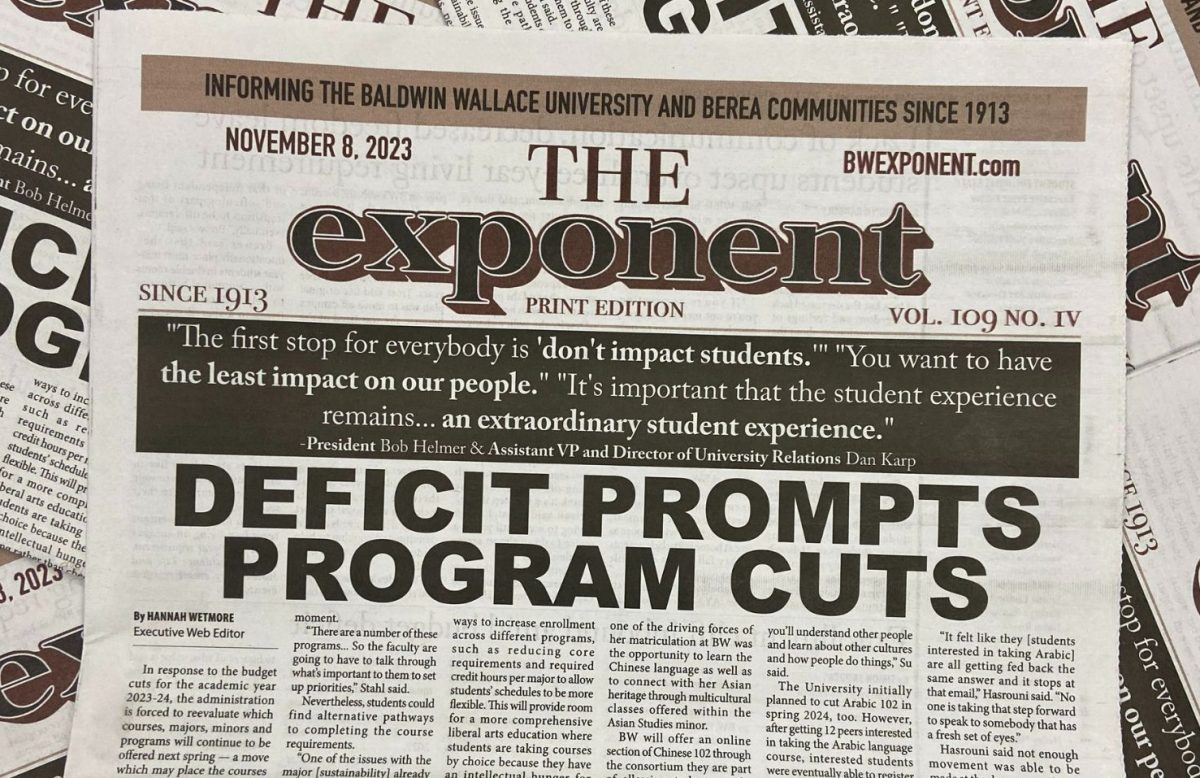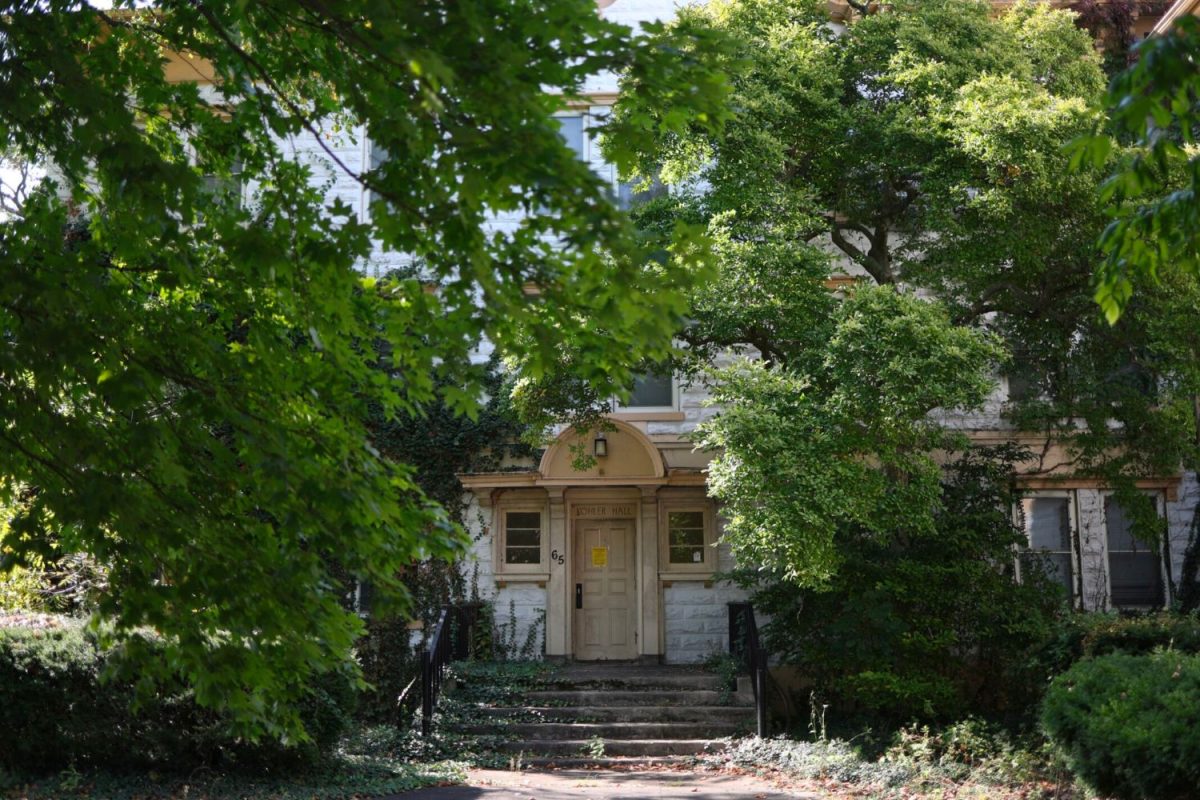In response to the budget cuts for the academic year 2023-24, the administration is forced to reevaluate which courses, majors, minors and programs will continue to be offered next spring — a move which may place the courses students already registered for in the upcoming semester on the chopping block.
Although final decisions are pending, there are some ideas of what will no longer be offered in the future — mainly majors and minors that previously could be offered despite low enrollment numbers. However, now that there is less wiggle room in the budget, these programs may be cut.
Provost Stephen Stahl said Spanish, German, piano performance, sustainability, religion, philosophy and some business programs are examples of majors and minors that have low student enrollment numbers at this moment.
“There are a number of these programs… So the faculty are going to have to talk through what’s important to them to set up priorities,” Stahl said.
Nevertheless, students could find alternative pathways to completing the course requirements.
“One of the issues with the major [sustainability] already is that it is, perhaps, more complicated than a regular pathway… So unfortunately, students might have to get degree substitutions, but it’s nothing unusual to have to do that,” Stahl said.
Stahl also mentioned reevaluating the way in which majors, like sustainability, are offered on campus.
“It is hard to define what a mastery of the subject of sustainability is at the undergraduate level… Is it something better served as something students take within the context of a major? [Or]as a series of courses that form a certificate?” Stahl said.
In the long term, there will be some conversations about ways to increase enrollment across different programs, such as reducing core requirements and required credit hours per major to allow students’ schedules to be more flexible. This will provide room for a more comprehensive liberal arts education where students are taking courses by choice because they have an intellectual hunger for learning rather than checking boxes on the core, Stahl said. Meanwhile, some courses were already cut on campus. For example, Chinese 102, the sequential spring class to Chinese 101, was canceled next semester due to low enrollment.
When deciding on which classes will be offered, the administration used to consider a class of six to be sufficient; now, the threshold is 10. “For courses that are too low [in enrollment], they are going to have to be canceled,” Stahl said.
Elanna Su, founder and president of the Asian Student Alliance, said that one of the driving forces of her matriculation at BW was the opportunity to learn the Chinese language as well as to connect with her Asian heritage through multicultural classes offered within the Asian Studies minor.
BW will offer an online section of Chinese 102 through the consortium they are part of, allowing students to take this particular class online at a different university with an accredited instructor.
Su said she appreciated BW offering alternative options for her and her peers to continue learning Chinese; yet, this is an “insufficient response” to the situation. Su found that the “irreplaceable” part of the Chinese language courses was not just the educational content but the “personal experiences and culture” her professor brought to the classroom, one of the many things she loves about BW’s small and personal classes.
“There are so many different backgrounds and walks of life, and the more you can expose yourself to those, the better you’ll understand other people and learn about other cultures and how people do things,” Su said.
The University initially planned to cut Arabic 102 in spring 2024, too. However, after getting 12 peers interested in taking the Arabic language course, interested students were eventually able to register for the class, Alissa Hasrouni, sophomore marketing student, told The Exponent. Hasrouni said she collected signatures of student support and presented them to Provost Stahl, asking him to consider continuing to offer Arabic 102.
“Especially with BW holding diversity really high, it’s saddening that they [the administration] are trying to get rid of a program that has so much power, beauty and culture… By scratching it [the Arabic language course] away, it prevents us from promoting diversity in our community,” Hasrouni said.
Hasrouni said that at first, they simply sent emails to advocate, but the effort was in vain. “It felt like they [students interested in taking Arabic] are all getting fed back the same answer and it stops at that email,” Hasrouni said.
“No one is taking that step forward to speak to somebody that has a fresh set of eyes.” Hasrouni said not enough movement was able to be made at the departmental level and hence she had to escalate her action to show the Provost what she and her classmates wanted.
Su said: “Even just this little fight [for Chinese 102] for the last few weeks… It feels draining. It feels we are constantly fighting to be recognized.”
In an interview with The Exponent, Stahl recommended student advocacy. “Students need to speak up about their interest in programs… It’s been a long time since I was a college student. I understand the needs of students, but I don’t have a handle on what the wants are,” Stahl said.







































